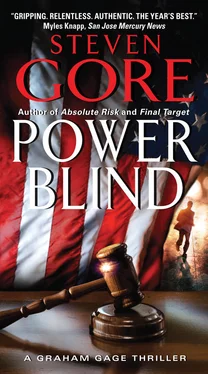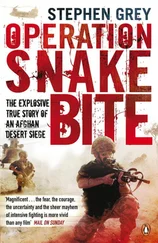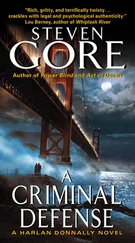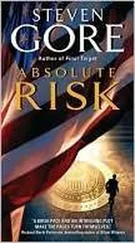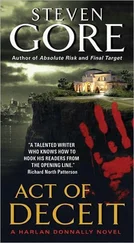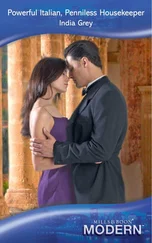Steven Gore - Power Blind
Здесь есть возможность читать онлайн «Steven Gore - Power Blind» весь текст электронной книги совершенно бесплатно (целиком полную версию без сокращений). В некоторых случаях можно слушать аудио, скачать через торрент в формате fb2 и присутствует краткое содержание. Жанр: Политический детектив, на английском языке. Описание произведения, (предисловие) а так же отзывы посетителей доступны на портале библиотеки ЛибКат.
- Название:Power Blind
- Автор:
- Жанр:
- Год:неизвестен
- ISBN:нет данных
- Рейтинг книги:3 / 5. Голосов: 1
-
Избранное:Добавить в избранное
- Отзывы:
-
Ваша оценка:
- 60
- 1
- 2
- 3
- 4
- 5
Power Blind: краткое содержание, описание и аннотация
Предлагаем к чтению аннотацию, описание, краткое содержание или предисловие (зависит от того, что написал сам автор книги «Power Blind»). Если вы не нашли необходимую информацию о книге — напишите в комментариях, мы постараемся отыскать её.
Power Blind — читать онлайн бесплатно полную книгу (весь текст) целиком
Ниже представлен текст книги, разбитый по страницам. Система сохранения места последней прочитанной страницы, позволяет с удобством читать онлайн бесплатно книгу «Power Blind», без необходимости каждый раз заново искать на чём Вы остановились. Поставьте закладку, и сможете в любой момент перейти на страницу, на которой закончили чтение.
Интервал:
Закладка:
He sat down and slipped it into his computer, and then leaned back in his chair. The drive whirled and clicked as he stared out toward the invisible bay, its shoreline marked by glimmering city lights. There was a long pause, then the beat of drums, the rasp of sticks, the rattle of gourds and, finally, rising from the weeping earth, the harp, the violin, and the flute.
On top of the enchanted world, far down you are flying west, where the sun falls, beautiful, sparkling, and forever, you go with the wind.
Steven Gore
Power Blind
Acknowledgments and Note to the Reader
A s usual, friends gave generously of their time to help me figure out what I meant to say and get it on the page. They are: Denise Fleming, whose editorial knife is as precise as it is sharp; Carol Keslar, whose early insights went a long way; Dennis Barley, a great investigator and shrewd judge of the motivations of humans, both real and imaginary; Davie Sue Litov, who insists that it be on the page; Bruce Kaplan, the only writer I know who can start with the weather and get away with it; Seth Norman, meandering the meander; and Randy Schmidt, who helped with some of the weightier issues.
Thanks go to my cousin Bobbie Chinsky and Howard Somerville and my sister Diane Gore-Uecker and John Uecker, early adopters of Graham Gage and Harlan Donnally; Louisa Havstad, of such good character that I made her one; Glenn and Judy Pollock, who knew Gage back when and have the photographs to prove it; Trevor Patterson, a former investigator who was everything Charlie Palmer was not; Cassie Patterson, a proud great-grandmother.
Thanks also for their enthusiasm, support, and good times: Lincoln, Gayle, and Haley Litov, Pauline Kaplan, Erin Kaplan, Erik Woods, Scott Sugarman, Chris Cannon, Bob Waggener, Paul Wolf, and Carl and Kathy Polhemus.
As always, the editorial, production, and design staff at HarperCollins did a wonderful job of making my work presentable to the reader: Emily Krump, who not only took on Graham Gage, Harlan Donnally, and me all at once, but asked all the questions a writer needs to hear from an editor; my publicists, Andy Dodds and Katie Steinberg, who had all the right contacts, and Stefanie Rosenblum of Planned Television Arts, who took me coast to coast; and to the sales and marketing people who have done such a great job of getting the books in places readers can easily find them. Thanks again to copyeditor Eleanor Mikucki, whose attention to both story and detail much improved the manuscript.
My wife, Liz, as always, made the book good enough to risk showing to others.
Like the other novels, in both the Gage and Donnally series, this one benefited from help I received in the course of my investigative work. Among those helpers were: Karnati Rama Mohan Rao, a legendary, gravel-voiced, wild-haired criminal defense lawyer in Andhra Pradesh, India. P. A. Kamaleswari of Hyderabad, a fine lawyer and advocate for Indian women and villagers, for whom caste is, in word and in deed, no bar. Banker “X” in Lugano, Switzerland who explained the art and craft of offshore deniability. And Police Superintendent “Y” whose display of a wad of currency told me that money would once again defeat truth and justice in South Asia.
Readers interested in the irreconcilable perspectives inherent in the notion of representation reflected in Landon Meyer’s speech might want to look at The Concept of Representation (University of California Press, 1972) and Wittgenstein and Justice (University of California Press, 1972) by Hanna Pitkin. They suggest an approach to accepting seemingly contradictory claims not only about representation, but about what counts as having done justice.
Readers interested in the two strains of conservatism Landon Meyer finds competing within him, and the issues involved in reconciling them, might want to look at the work of the great British conservative political philosopher Michael Oakeshott, collected in Rationalism in Politics (available in various editions). It contains the famous and beautifully written essay “On Being Conservative,” which is also available online.
The Yoeme (Yaqui) language quotes from the traditional Yaqui Deer Songs that begin and end the book are drawn and modified from “Maiso Yoleme/Deer Person,” Felipe Molina, Yoem Pueblo, August 21, 1984, in Yaqui Deer Songs, Maso Bwikam: A Native American Poetry, Larry Evers and Felipe S. Molina (University of Arizona Press, 1987, pp. 71 and 106). The phrase “the weeping earth” is from “The Elders Truth,” a sermon by Miki Maaso at Yoem Pueblo on December 22, 1987 (transcribed by Felipe S. Molina and Larry Evers, Journal of the Southwest, volume 35, number 3, Autumn 1993). I put together my own version of the song that ends the book.
The lines said by Alex Z beginning: “All sorrows can be borne if you tell a story about it” are paraphrased from Isak Dinesen, author of Out of Africa, quoted in Hannah Arendt’s “Truth and Politics” in Between Past and Future (Penguin Classics, 1993). The concluding part of the line is: “At the end we’ll be privileged to view and review it-that’s what’s called judgment day.” A different version appears in Dinesen’s Last Tales.
I hope I didn’t offend any readers with Tansy’s comments about Carlos Castaneda and his fictional Yaqui shaman, but like her, while growing up along South Sixth Avenue in Tucson, Arizona, I never saw an Indian fly-even as we raced with dimes in our hands from the sandlot next to my house past Vic’s Trading Post to the legendary Le Caves Bakery on the corner.
Интервал:
Закладка:
Похожие книги на «Power Blind»
Представляем Вашему вниманию похожие книги на «Power Blind» списком для выбора. Мы отобрали схожую по названию и смыслу литературу в надежде предоставить читателям больше вариантов отыскать новые, интересные, ещё непрочитанные произведения.
Обсуждение, отзывы о книге «Power Blind» и просто собственные мнения читателей. Оставьте ваши комментарии, напишите, что Вы думаете о произведении, его смысле или главных героях. Укажите что конкретно понравилось, а что нет, и почему Вы так считаете.
